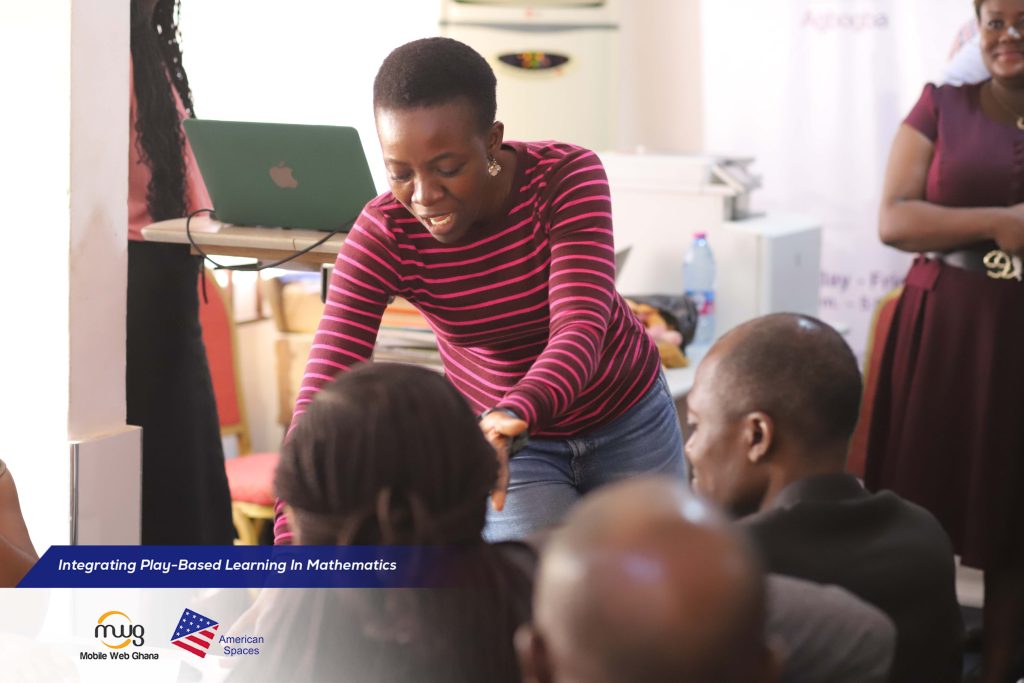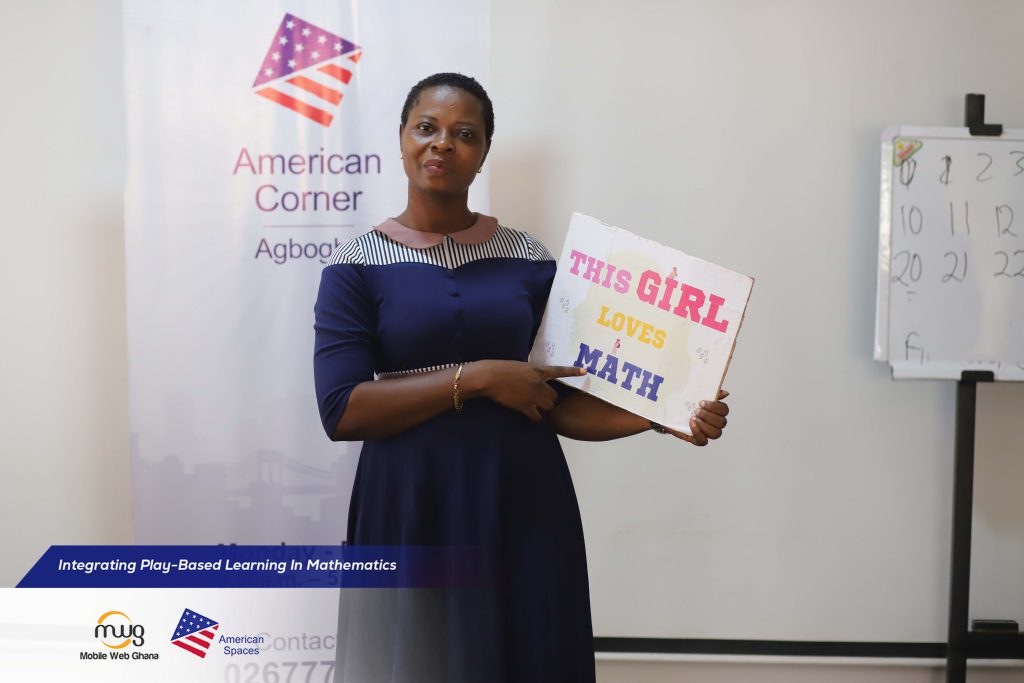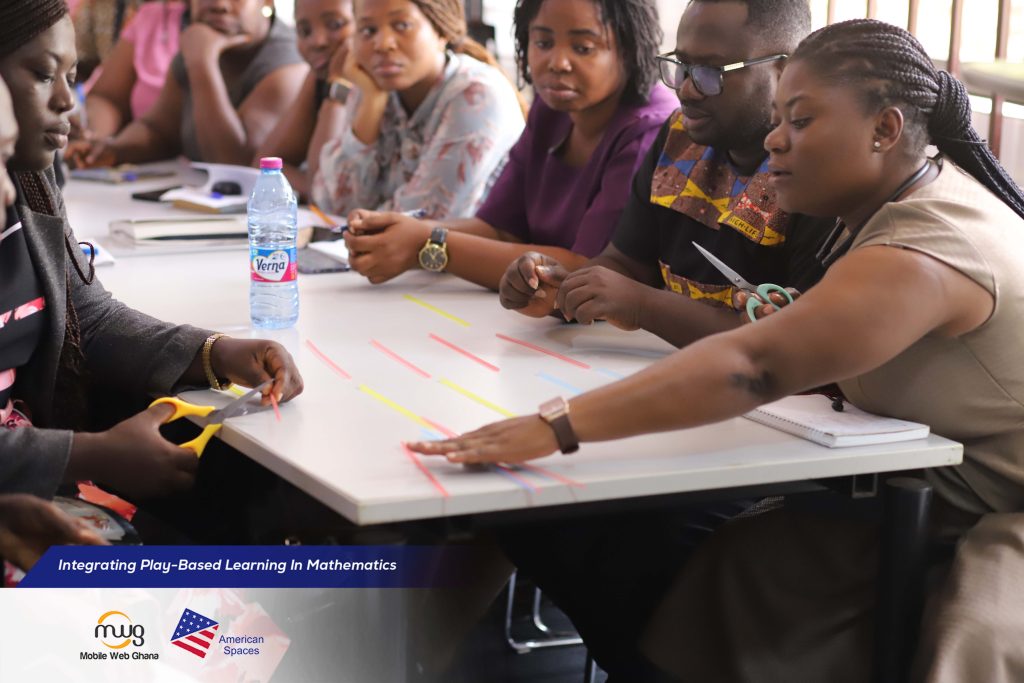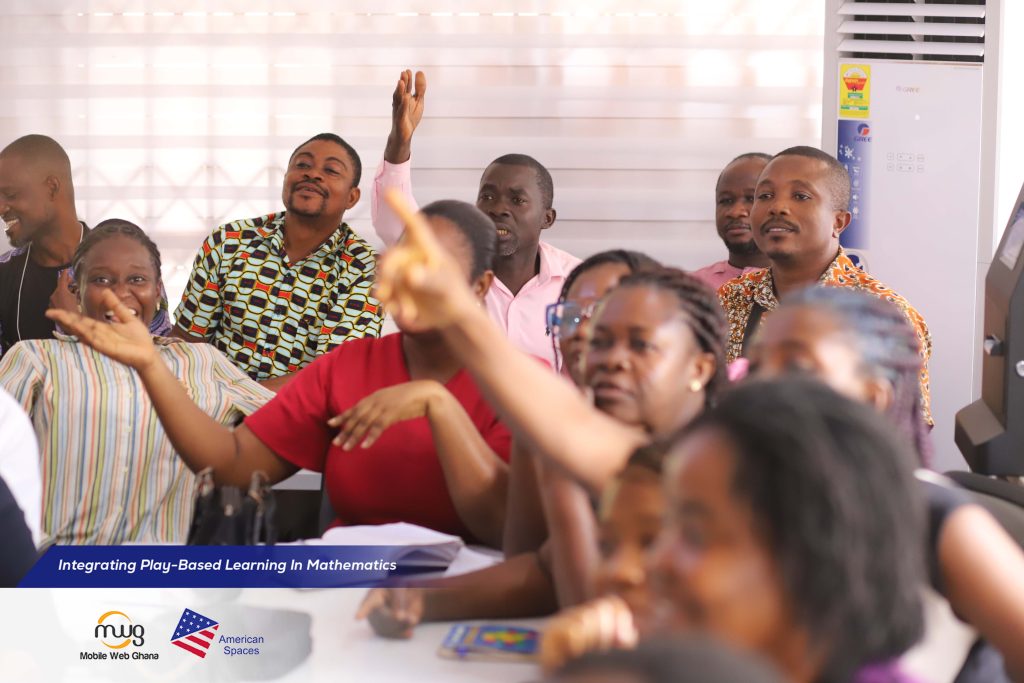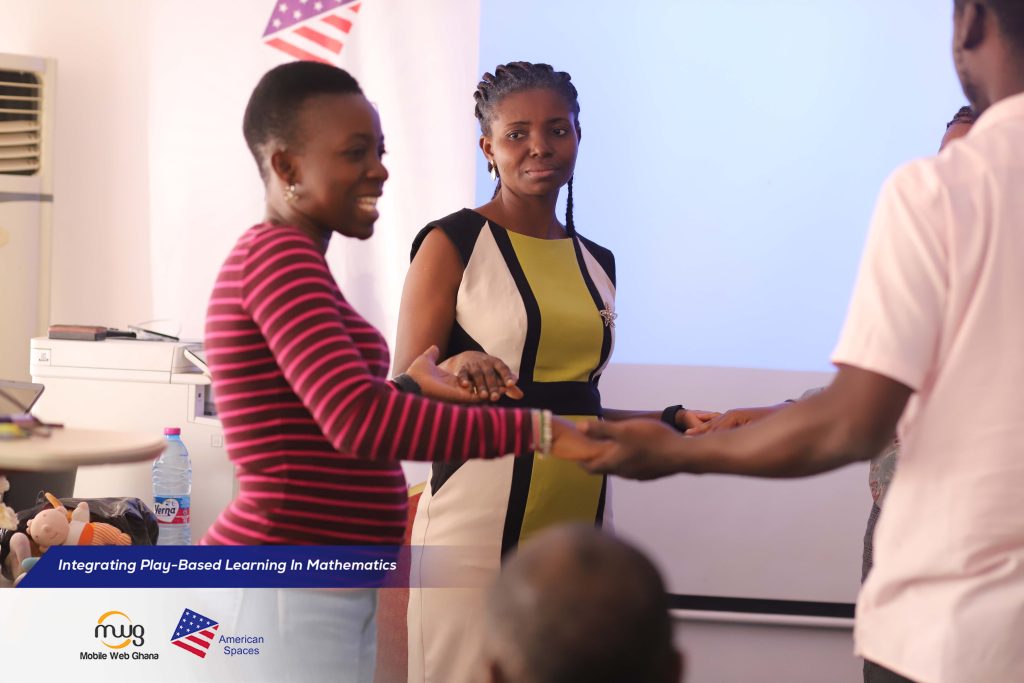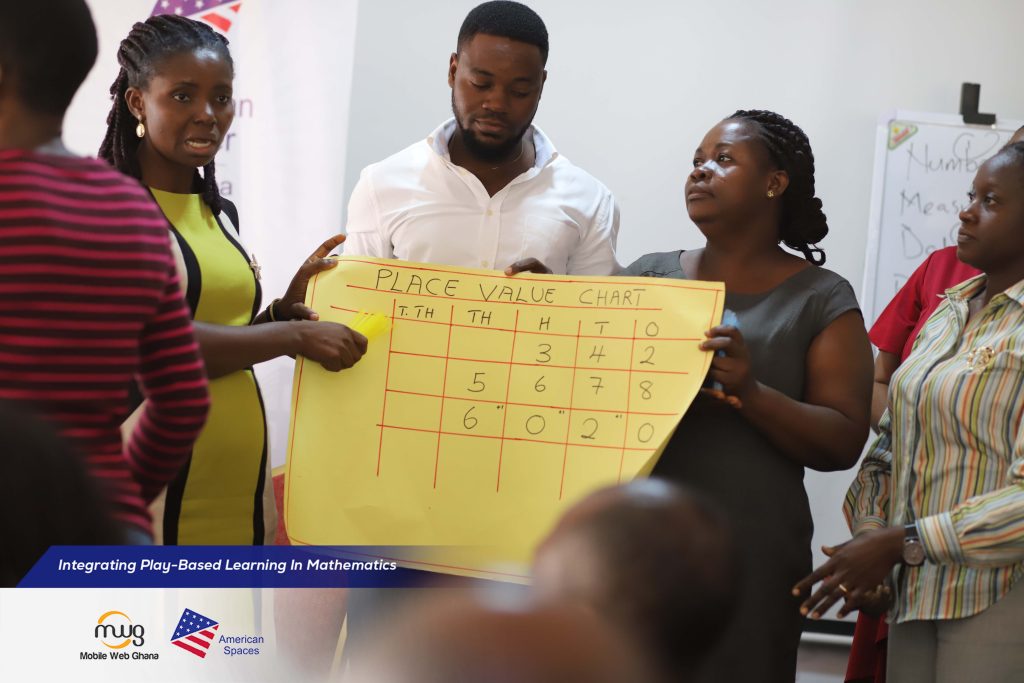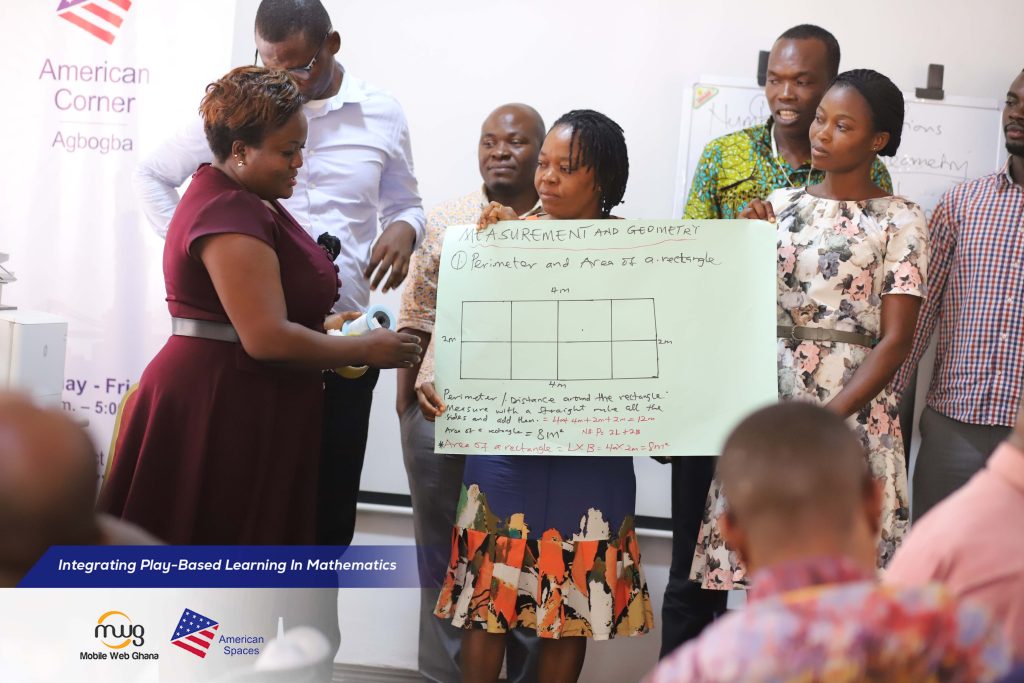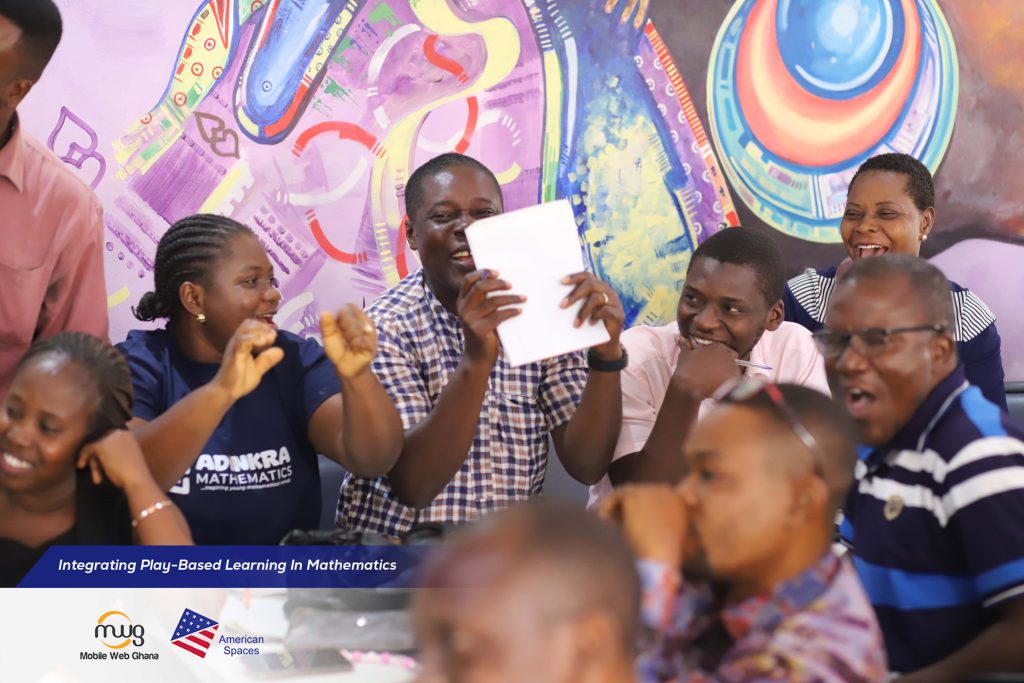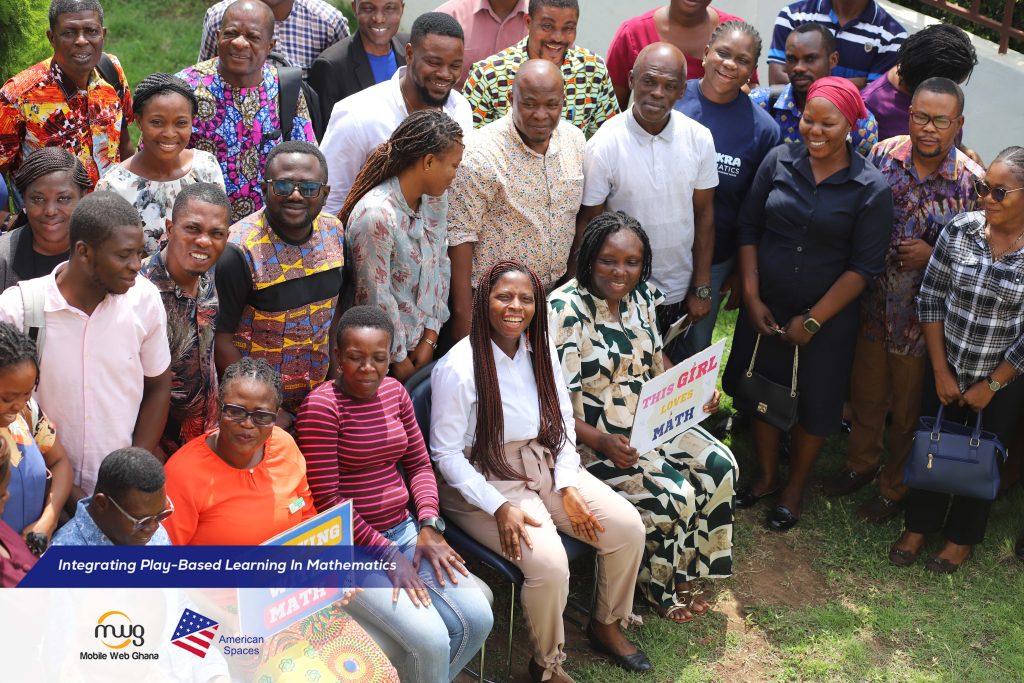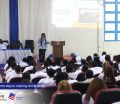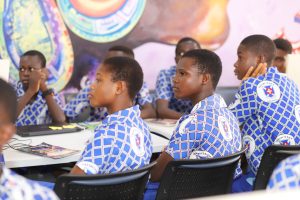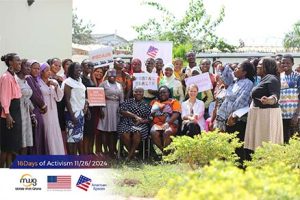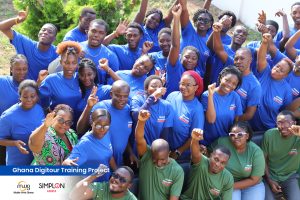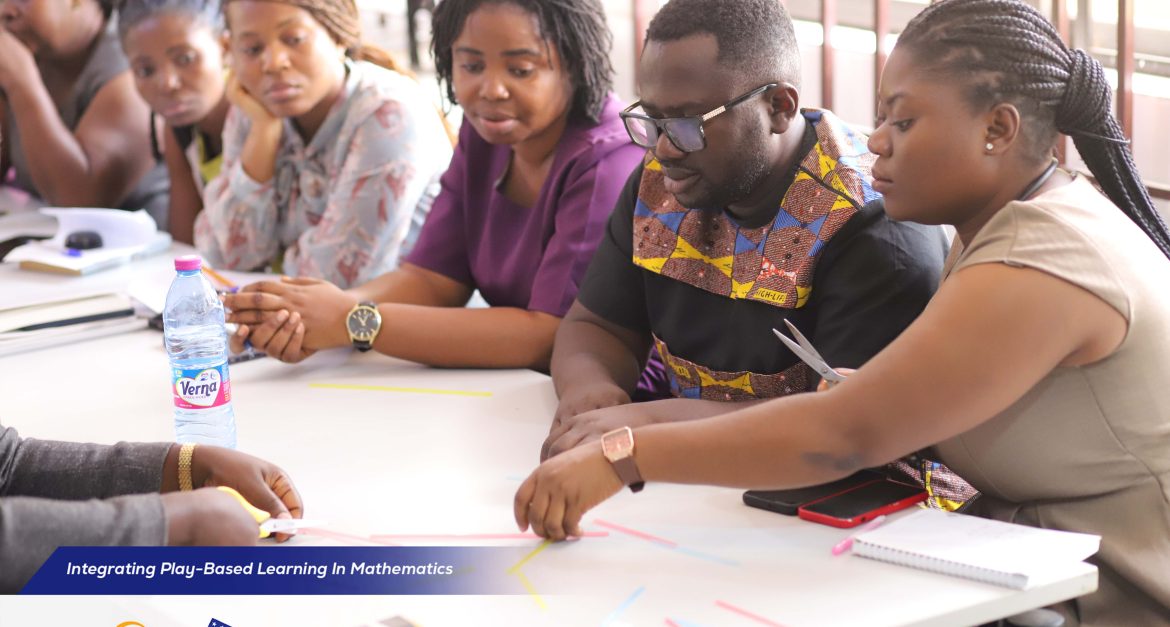
Did you ever freeze up at the sight of a long division problem on the board? Or suddenly develop a stomachache during math class? You weren’t alone.
Studies have shown that over 60% of students globally experience some form of math anxiety, which can severely affect their academic confidence and long-term relationship with numbers. In Ghana, the story is no different national reports consistently show low math performance and rising fear of the subject from as early as basic school.But what if we could reprogram that fear into fun? That was the goal of the recent workshop hosted at American Corner Agbogba: “Integrating Play-Based Learning in Mathematics” a dynamic training session aimed at helping teachers make math enjoyable, relatable, and anxiety-free for their students
Why Math, and Why Now?
Across Ghana, national assessments consistently show that a large percentage of students struggle with basic math proficiency, often due to how the subject is traditionally delivered—rote, rigid, and far removed from everyday life. This challenge becomes even more critical in the face of Ghana’s 2024 National Artificial Intelligence Strategy, which calls for stronger foundational skills in numeracy, logical reasoning, and problem-solving.
Recognizing this gap, Mobile Web Ghana and the U.S. Embassy Ghana are working together through the STEM Series and other educational initiatives to fill the cracks in STEM education, especially at the foundational levels. Their joint mission? To nurture a generation of learners who not only understand STEM but can also apply it to real-world challenges starting with how math is taught.
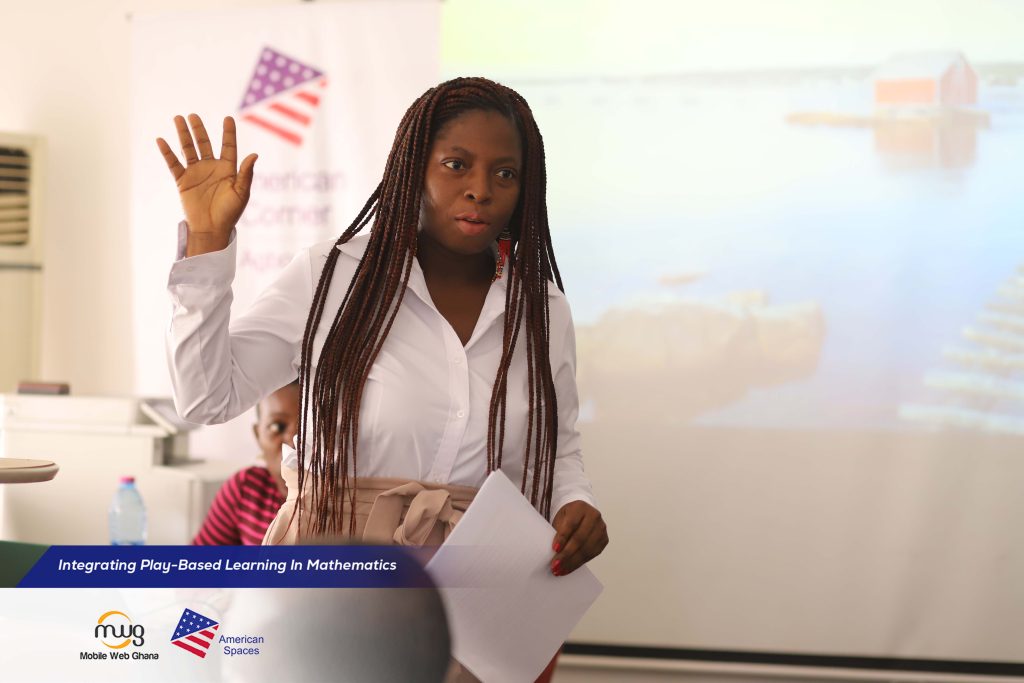
The event began with opening remarks by Madam Florence Toffa, Director of Mobile Web Ghana. She highlighted the urgent need to shift classroom experiences from fear-based to joy-filled, especially in math.
“STEM education isn’t just about advanced tech t begins with confidence in the basics. If we want to raise a generation ready for AI, robotics, and innovation, we must first take the fear out of math,” she said.
Leading the charge was Dr. Gloria Agyeiwaa Antwi Botchway, the first female PhD holder in Mathematics from the University of Ghana with energy and clarity, she walked teachers through play-based teaching techniques from storytelling and board games to puzzles and role-playing activities that bring math concepts to life.
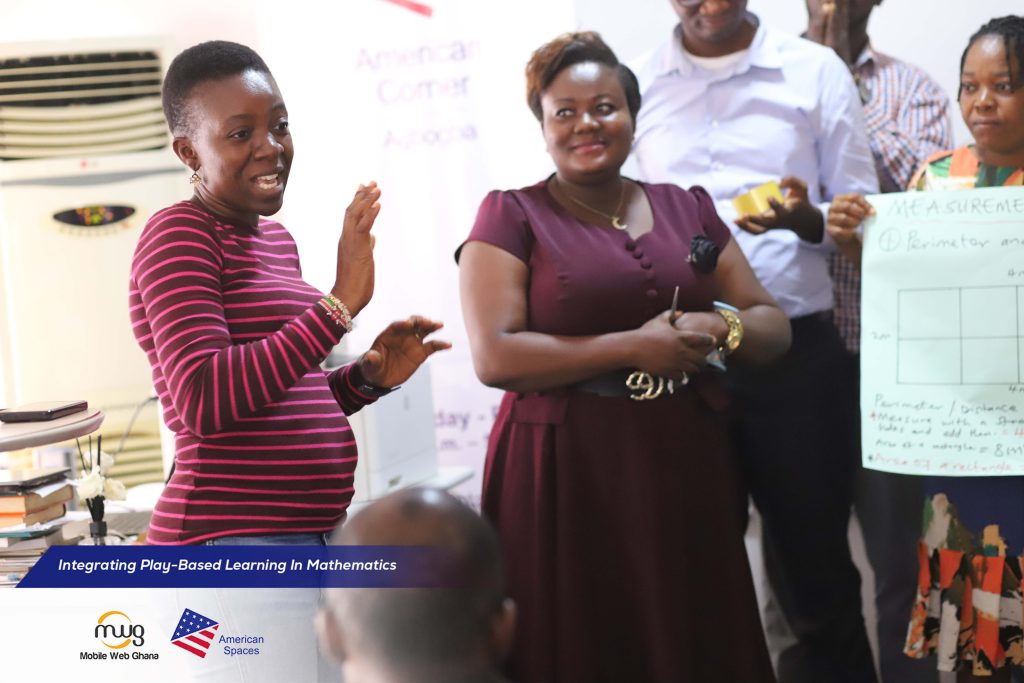
Instead of lectures and worksheets, teachers experienced math through movement, teamwork, and laughter.
“I’ve always wanted to make my math classes more exciting this gave me the confidence to do it,” said one teacher from Adentan.
For Mobile Web Ghana and the U.S. Embassy Ghana, this initiative is part of a broader effort to bridge the STEM education gap across the country. While digital tools and AI are the future, they rest on a strong foundation in numeracy, logic, and critical thinking skills deeply rooted in how we learn and teach mathematics today.

